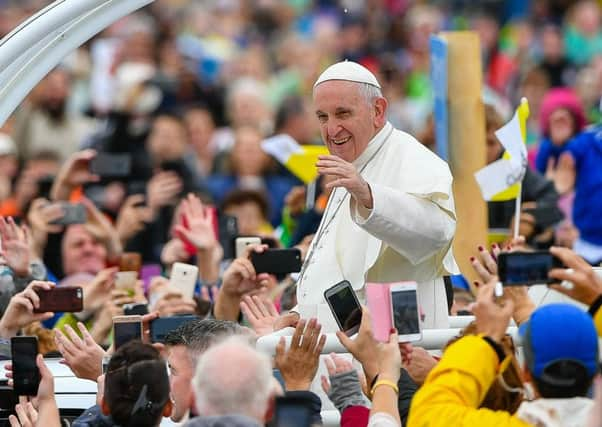Nationalist and republican parties now '˜anti-Catholic'


Peadar Toibin held a public meeting in Maghera, Co Londonderry last month to gauge support for a new party after leaving Sinn Fein over the issue of abortion.
“At the Maghera meeting I was really taken by the level of pain and hurt in nationalists with regards to the two main [nationalist] parties,” he said.
Advertisement
Hide AdAdvertisement
Hide Ad“One of the key issues for sure was the feeling of a new sectarianism in the nationalist and republican community, where it is difficult to say in public that you are a practising Catholic, attend mass and are raising your children as Catholics.”
He added that three or four people at the Maghera meeting were nationalists or republicans who now vote DUP because it is the only NI party with clear pro-life stance; and some of them were Irish language enthusiasts “who speak the language in their own homes”.
It could be that this pattern of a minority of nationalists voting DUP on account of its pro-life stance might be reflected across NI, he added.
The SDLP and Sinn Fein declined to comment on his claims, as did Amnesty International, which campaigns to relax abortion legislation in NI.
Advertisement
Hide AdAdvertisement
Hide AdPro-life campaigner Bernie Smyth agreed with his assessment of rising anti-Catholic sentiment in nationalist political parties. “Yes, absolutely, it makes sense,” she said. “We have met many pro-life nationalists/republicans, but who now vote for DUP.”
With increasingly liberal views on divorce, same-sex marriage and abortion, analysts noted that during his visit to the Republic of Ireland last year, Pope Francis encountered a radically different country to that which Pope John Paul II visited in 1979.
Fr Patrick McCafferty said Mr Toibin’s analysis is correct. “Last year, around April, before the [southern] Abortion Referendum, I was asked by [a Belfast newspaper] to provide an opinion piece on abortion.
“I was rounded upon by a certain politician who said the Church should “keep its nose out” of the abortion debate.
Advertisement
Hide AdAdvertisement
Hide Ad“In responding to this politician, I referred to a ‘new anti-Catholicism’ as vicious and virulent as what we had experienced in the past... except this is coming from within our community and is driven by an aggressive secularism which would like to silence the Church’s voice.
“Faithful Catholics whom I know feel they have no political party to represent them anymore. As faithful Catholics, who are also Irish nationalists/republicans, they can no longer vote for Sinn Fein because of its militant abortionist stance.
“The sight of two politicians holding up a sign, in the midst of the euphoria at Dublin Castle in May 26th, declaring ‘The North is Next’ horrified and disgusted many faithful Catholics. It is impossible now to vote for a party so profoundly at odds with God’s Law.
“Peadar Toibin’s new party is, therefore, a most welcome development, as there is very little chance, that many Catholics will ever vote DUP, just because their position on abortion happens to coincide with what we believe as faithful Catholics.”
Advertisement
Hide AdAdvertisement
Hide AdMr Toibin also lamented the fact that despite repeated requests, as southern enterprise spokesman for Sinn Fein, he only met his NI counterpart “three times in eight years” which he believes illustrates the party’s failure to apply itself to Irish unification.
Three interested Tyrone unionists have also contacted him, he said, because they don’t support the DUP on Brexit and are looking for a political outlet.
He declined to comment on the UK paramilitary assessment of 2015 which found the IRA Army Council still oversees the strategy of the IRA and Sinn Fein.